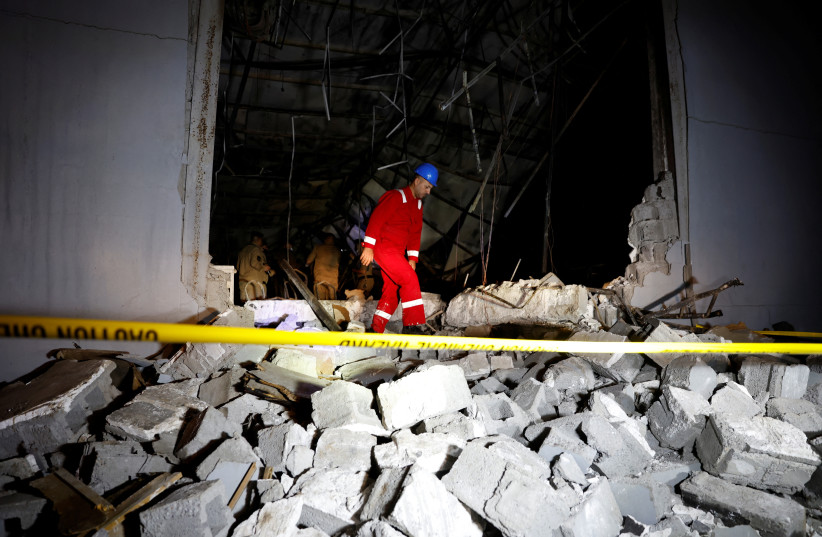As bodies are still being identified from a massive wedding hall fire in northern Iraq last week, the bride and groom who survived have given a statement to the media, published online in a video. They said they feel “dead inside” after the disaster. They also described trying to flee as the fire consumed the hall, which had only a few exits for hundreds of people; the couple was trampled on as well.
There are so far 177 known victims of the disaster.
According to reports in Rudaw media in Erbil, “the archbishop of Mosul on Saturday called on the government to hold all those responsible for the harrowing fire of Hamdaniya accountable for their actions, threatening a mass strike if this does not happen.”
The fire took place in a Christian town that has been recovering since the war on ISIS, which expelled Christians from Mosul, Nineveh, and Christian towns like Hamdaniya, also known locally as Qaraqosh and Bekhdeda. It is festooned with churches, and in recent years it has resumed as a center of Christian life. Nineveh plains east of Mosul are also dotted with Christian communities, many of which have suffered in the last decades.
“Either everyone responsible [for the fire] will be held accountable, or we will go on strike. If we strike, it won’t be only in our areas, it will be all over Iraq,” Syriac Catholic Archbishop of Mosul Benedictus Younan Hanno told Rudaw’s Ranja Jamal, adding that the Christian community wants to see actions taken by the government.
Rudaw also reported that “Nineveh’s forensics medicine department on Sunday said that DNA samples are being taken from families of the tragic Hamdaniya fire victims to identify 37 bodies at the morgues.”

“Iraq on Wednesday announced a three-day mourning period across the country for the victims of the tragic blaze, a call that was soon echoed by the Kurdistan Regional Government (KRG). Funeral processions for dozens of the victims have been held in Hamdaniya since Wednesday,” the report noted.
Will enough help come to the Christian communities?
While authorities have promised to crack down after the mourning period, it is not clear if enough investment will come to Christian areas near Mosul. These areas suffered grievously when ISIS occupied Christian towns between 2014 and 2016. Many were emptied of people, and in recent years there has been continued instability in the region, with Christians seeking shelter in the Kurdistan autonomous region, east of Nineveh, about an hour’s drive away.
In Erbil, many Christians live in Ainkawa, a neighborhood near the airport. Some have sought to return since areas such as Hamdaniya were liberated from ISIS in 2016. Since then, churches have been restored and civilian life has returned, with weddings being an important example of that. The disaster, which killed more than 100 people, will now cast a new shadow over this return of civilian life.
